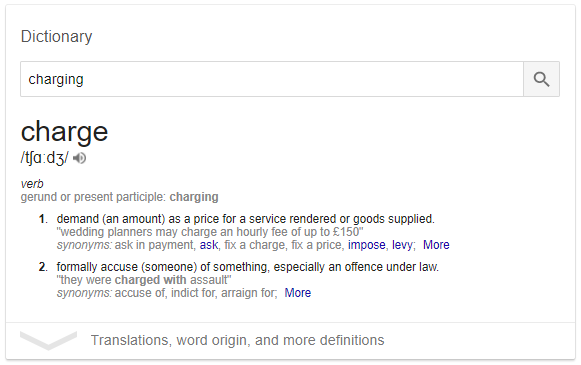Have you ever Googled “what is charging”? The funny thing is, it seems like such an obvious question until you see the answers.
THE BASICS OF CHARGING YOUR DEVICES
Your phone battery is essentially a tiny compartment of chemical energy. Every time you plug your phone in to charge, you’re basically the catalyst to reset a chemical reaction which inside the battery. For those of you who passed chemistry, charging is the transfer of electrons from the negative end of a battery to the positive end (and for those who liked chemistry, electrons passing from the negative anode to the cathode).
Most smartphone or smart device technology now includes a Lithium-ion battery. Charging works the same way with these batteries, despite slightly modified components within the battery. But we won’t get into the details.
HOW AMPERAGE, VOLTAGE, AND WATTAGE WORK TOGETHER WHEN CHARGING
Amperage is the strength of an electric current often used to measure charging. In fact, amperage is the difference between a lightning quick full charge and an all-day trickle. Amperage is the defining factor of how quickly your device will charge.
Voltage, on the other hand, is the unit of current. Interestingly enough, it is actually a function of pressure – and in this case referencing the chemical reaction that creates charge. In simpler terms (kind of), voltage is equal to the pressure that pushes electrons through their conductive loop (or from the anode to the cathode).
Wattage, on the other hand, is the rate at which energy is either created or spent. Watts represent energy per unit of time. As an example we’ve all run into, when buying light bulbs, a 100W light bulb means that the light bulb will last for 100 Watt hours.
These three concepts tie together in this formula defining charge:
Watts = Amps x Volts
So, for example, a phone charger delivering 5 Watts = 5 Volts x 1000 mA.
According to this in-depth article from Wired:
“For example, consider these charging scenarios for the Retina iPad mini. You could use a Lightning connector plugged into a computer (via USB), an iPhone charger connected to a wall socket, or an iPad charger connected to a wall socket. A PC USB charger delivers 2.5 Watts of power (5 volts at 500 mA). An iPhone charger delivers 5 Watts (5 volts at 1000 mA). A Retina iPad mini charger delivers 10 watts (5.1 volts at 2100 mA).
“While all of these will charge your iPad, using the USB connected to a PC will charge your Retina mini four times slower than if you used the iPad charger it came with. Conversely, if you use a tablet charger for your smartphone, it’d charge up faster than normal (Note: Some devices like the iPhone will only draw up to 1A of current no matter the charger). If you play mix-and-match with these types of chargers like this, don’t worry – you’re not going to blow up your phone or anything crazy like that. And the myth that charging your device at a faster rate will reduce the life of your device’s battery is false. For some older devices, the higher specced charger just won’t work at all, while newer devices will just charge faster.
“Ultimately, it’s really the amperage that determines how fast a charger will supply power to your device. If you want quicker charging, look for a wall or car charger that delivers 2100 mA of current at 5 volts (or whatever voltage the device you’re trying to charge is specced at).”
WHY IS IT IMPORTANT TO UNDERSTAND RECOMMENDED WATTAGE, AMPERAGE, AND VOLTAGE WHEN CHARGING?
The age-old question: how fast of a charger is too fast? As you’ve noticed, the larger the brick, the quicker the charge.
Larger bricks accommodate for larger chemical reactions and pressurization – charging phone batteries even quicker. Naturally, an iPad requires more reaction to charge. Accordingly, an iPad charger will charge your iPhone quicker whereas an iPhone charger could equate to a trickle charge for your iPad.
The best way to know that you are protecting your devices and charging properly is to check their tags or manuals. If you don’t have either handy, a quick Google search will keep you on the right track.
But to reiterate the point from Wired’s article, it’s a myth that you will reduce phone battery life or blow up your phone by charging at a higher wattage than its standard charger offers. Newer, higher wattage chargers simply speed up the charging process.


